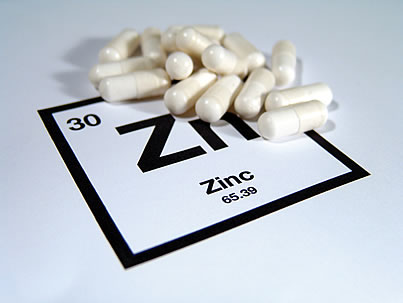How to optimize your zinc levels
After we had described the role of zinc for our health, we explain what you need to consider in optimizing the zinc level today. As always, it is best to introduce enough zinc in the diet foods. Animal products contain the highest proportion of zinc, as you can see in the table. Oysters are here to tip the scales up to 182 mg per serving! If you have a zinc deficiency, for any reason, you can add to your diet a zinc supplement. But what kind of supplement you should be taking? You’ll find out in today’s post.
Chelated forms of zinc are better absorbed.
There are a number of different forms of zinc on the market, some very good, some less. It is advisable to choose a chelated zinc.
The chelation is a process that is sometimes used to bind zinc to other substances, so that it is more absorbable and bioavailable. The organic molecules are electrically charged, which allows them to gain more zinc.
An advantage of the chelate is that there is no antagonism with calcium, which can be a problem for zinc salts, such as zinc sulfate.
Zinc sulfate is one of organic forms of zinc or zinc salts. These are not as biologically active as the chelated. Zinc sulfate can e.g cause stomach irritation.
It is advantageous if possible to take a supplement with a variety of forms to be.
The current RDA guidelines for zinc are listed in the following table:
| Age | Male/Female | Pregnancy | Lactation |
| 0-6 Months | 2 mg/2 mg | ||
| 7 Month – 3 years | 3 mg/3 mg | ||
| 4-8 Years | 5 mg/5 mg | ||
| 9-13 Years | 8 mg/8 mg | ||
| 14-18 Years | 11 mg/9 mg | 12 mg | 13 mg |
| ab 19 Years | 11 mg/8 mg | 11 mg | 12 mg |
These recommended dosages are valid for elemental zinc and any form of zinc (zinc sulfate, zinc citrate, zinc gluconate, etc.) and contain a different amount of elemental zinc.
For example, there are about 23 % of the zinc sulphates of elemental zinc. Therefore 220 mg zinc sulfate would account for about 50 mg of elemental zinc. You must take this into consideration if you take zinc as a supplement to be, and the fact that an average person receives about 10 to 15 mg of zinc per day from their “normal” food.
So you should decide at your own discretion whether you are with your zinc supply at the top or bottom of the list.
Too much of a good thing.
Certain foods and drugs can interfere with the absorption, so that the timing of supplementation is very important.
Certain foods and drugs can interfere with the absorption, so that the timing of supplementation is very important. The amino acids cysteine and methionine improve zinc absorption, taking your zinc supplement with a high quality protein would be of added health benefit.
Although it is important to ensure that adequate zinc intake, you should also pay attention to a good balance.
A “too much” can lead to problems, although usually fairly high dose would take a long time to reach toxic concentrations.
A permanent increased zinc intake, the copper and iron absorption prevent and leads to a lack of these minerals.
In conclusion, zinc part of an often-forgotten basic foodstuff which is need for fighting your flu illness.